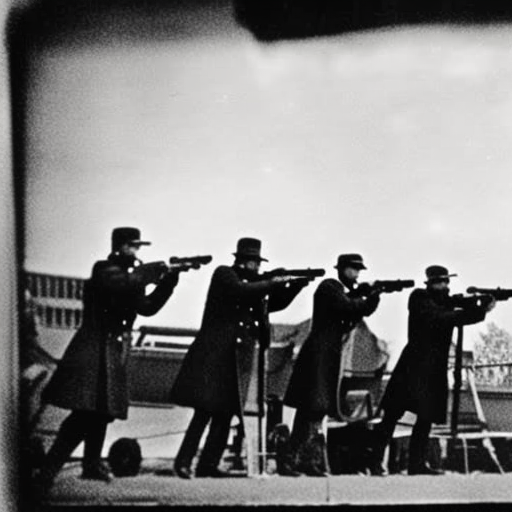Franz Ferdinand’s Assassination (1914)
The assassination of Archduke Franz Ferdinand of Austria on June 28, 1914, in Sarajevo, Bosnia, was a significant event that ultimately triggered the outbreak of World War I. The assassination was carried out by a group of Bosnian Serb nationalists known as the Black Hand, led by Gavrilo Princip. This event is widely regarded as the spark that ignited the tensions and rivalries among European powers, leading to the global conflict that would reshape the world.
The Background
In the early 20th century, the Austro-Hungarian Empire controlled Bosnia and Herzegovina, which had a large population of ethnic Serbs who desired independence and unification with Serbia. The Black Hand, a secret society, emerged as a prominent group advocating for Serbian nationalism and the liberation of Bosnia from Austro-Hungarian rule. The assassination of Franz Ferdinand was seen as a way to achieve these goals.
The Assassination
On June 28, 1914, Franz Ferdinand, heir to the Austro-Hungarian throne, and his wife, Sophie, arrived in Sarajevo for an official visit. As their motorcade traveled through the city, a member of the Black Hand, Gavrilo Princip, shot and killed the couple. The assassination was a meticulously planned operation, with several members of the Black Hand strategically positioned along the route. However, the initial attempts to kill the Archduke failed, and it was only by chance that Princip encountered the royal couple on a side street.
The Aftermath
The assassination of Franz Ferdinand had far-reaching consequences. Austria-Hungary, blaming Serbia for the attack, issued an ultimatum to the Serbian government, demanding a thorough investigation and the suppression of anti-Austrian activities. Serbia agreed to most of the demands but rejected some, prompting Austria-Hungary to declare war on Serbia on July 28, 1914. This declaration set off a chain reaction of alliances and declarations of war among European powers, leading to the outbreak of World War I.
The Outbreak of World War I
Following Austria-Hungary’s declaration of war on Serbia, a complex web of alliances came into play. Russia, Serbia’s ally, mobilized its forces to support Serbia, prompting Germany to declare war on Russia. Germany then invaded Belgium and Luxembourg as part of its plan to quickly defeat France. This violation of Belgian neutrality led to Britain declaring war on Germany. The conflict quickly escalated, with other countries joining the war on both sides.
The Significance
The assassination of Franz Ferdinand was a turning point in world history. It exposed the deep-rooted tensions and rivalries among European powers, which had been simmering for years. The complex system of alliances and the rapid escalation of the conflict resulted in a devastating war that lasted for four years and claimed millions of lives. World War I also marked the end of several empires, including the Austro-Hungarian, Ottoman, German, and Russian empires, and paved the way for significant political, social, and economic changes in the 20th century.
In conclusion, the assassination of Archduke Franz Ferdinand in 1914 was a pivotal event that triggered the outbreak of World War I. The assassination, carried out by the Black Hand, a Bosnian Serb nationalist group, led to a series of events that ultimately resulted in a global conflict. The war had profound consequences, reshaping the political landscape and setting the stage for the turbulent 20th century.












